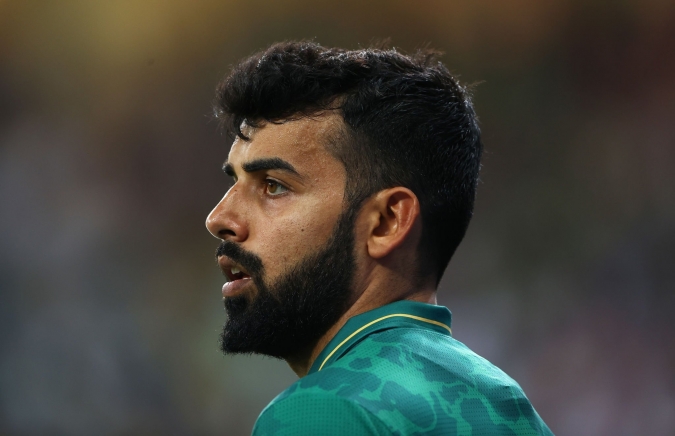- Urdu version is attached here
Following the seven-match T20Is series against England, we have arrived in Christchurch on the final leg of our preparations for the ICC Men’s T20 World Cup Australia 2022 and play Bangladesh on Friday and New Zealand on Saturday. In the return matches, we play New Zealand on Tuesday and Bangladesh on Thursday. This makes 11 T20Is in 24 days.
If you add the 17 October and 19 October warm-up matches against England and Afghanistan, respectively, then it means we would have played, at least, 13 T20s in 30 days before we take on India in the tournament opener in Melbourne on 23 October.
In contrast, in the lead up to the England series, we had played only seven T20Is in 2022! Nevertheless, we as a group are now looking forward and not backwards.
There has been a public outcry following our 4-3 loss to England, but if the series is dissected and analysed, then actually we had two poor days in the office when we were thumped by eight wickets and 67 runs in Lahore that cost us the series.
The first match went down to the wire before England won by six wickets, we chased down 200 runs in the second without losing a wicket, lost by 63 runs in the third, successfully defended four runs in the last over to win by three runs and an inexperienced Aamir Jamal saved 15 runs in the last over when the destructive Moeen Ali was at the striker’s end to win by six runs.
But we understand and accept the anger and frustration of the fans and public: they’ve once again started to pin hopes on us after what we have achieved as a team in the past 12 months. That’s why their reaction has been so strong, but only those who have played this great game can understand the real feelings and sentiments of the players when they end up on the losing side. Everyone wants to enter the competition with an intent to win, but it’s just not always possible. Sometimes, your opponents play better and deserve to win, while sometimes you play below the standards you have set for yourself and deserve to lose.
On the long flight from Lahore to Christchurch, we as a unit got a chance to reflect on what worked well for us and what we could have done differently. We know the answers and are now committed in putting these right. We have to learn from the past, live in the present and prepare for the future, that’s the pathways to success and we are committed in getting back on track.
The games against England have helped us identify the areas where we need to make minor tweaks and changes, and we will hopefully demonstrate in Christchurch that we have plugged the holes.
In my previous column, I wrote about Babar Azam’s leadership. This man is incredible: the more I play with him, the more I learn about the man and the more I admire him!
The way this 27-year-old, who is relatively new to the leadership role, has handled relentless pressure and sometimes unfair criticism while ensuring his own performance doesn’t slip, is simply mindboggling. He has stood like a rock for his players and fully backed them. This is the hallmark of a leader, this is how you earn respect from your players and this is how you develop your team.
Babar has thrown his complete weight behind each and every member of his side and now the onus is on all of us to deliver. We need to justify the faith Babar has put in our talent, credentials and skills. If we have to make our captain stand tall and be proud, then we have to convert our potential into performances. The captain is giving us everything we need to stamp our mark and authority at the international level, we now have to rise to the occasion, it’s as simple as that!
I stand firmly with Babar and believe we have what is required to perform strongly in New Zealand and Australia. We just need a couple of confidence and morale-boosting performances, and all pieces will in their places.
Only those succeed who believe in themselves, and I can assure everyone, despite our mixed performances in the United Arab Emirates and against England, we are convinced we can live up to the expectations of our captain, fans and followers in New Zealand and Australia.




